Reflections from the Prizmah Conference
A joy of being part of the funder-grantee relationship is experiencing the grantee-partner’s work first-hand. In particular, I am grateful that the Jim Joseph Foundation prioritizes staff time to experience field-wide gatherings hosted by grantee-partners, many of which are occurring for the first time following the height of the pandemic.
Recently, I was privileged to attend the Prizmah conference in Denver, where I learned alongside educators, education leaders, lay leaders, content experts, funders and other inspiring colleagues. While I was a little nervous congregating with so many people again, I was immediately put at ease by the warmth and creative energy that was palpable throughout the conference (as well as thoughtfully planned break time to breathe in the fresh Colorado air).
Experiencing the conference reinforced for me the importance of investments in network organizations. These organizations, such as Foundation for Jewish Camp, JCCA, along with Prizmah and others, are uniquely positioned to bring together many diverse voices in the field to celebrate and learn from each other’s successes, while also addressing challenges and imagining and planning for a vibrant Jewish future.
Now in its seventh year as an organization, Prizmah’s conference exemplified its readiness to sustain and grow the day school field by supporting the people and schools who positively influence young learners and help develop them into leaders. Here are some insights into how Prizmah leveraged the conference to pursue this vision:
- A Platform for Futurist Thinking – By bringing education futurists to speak at the conference, Prizmah helped reinforce the need for day schools to anticipate not just what families and educators want now, but to think about these needs with a long-term view, ten, twenty years out. What should Jewish/secular curriculum look like then? What will parent engagement need to account for then? What will student and educator needs be at that time? What will an endowment look like that ensures financial stability and offers long-term affordability models? Many conference participants had already begun to think in this way and about these questions, but futurist speakers like Lisa Kay Solomon, Ariel Raz, and Louie Montoya helped to inspire, prioritize, and concretize how to develop plans with a level of specificity that address these areas.
- An Investment in the Entire Ecosystem – Prizmah has a very holistic approach to the day school field’s opportunities and challenges. In this regard, Prizmah as a network organization is a conduit for the Foundation to invest in educators that influence myriad learners, families, and communities each year. At the conference, while some of the conversations focused on the local level, it was clear that people were craving macro level systemic content and resources. Conference participants, for example, wanted to hear how Prizmah network members and partners are addressing educator pipeline, recruitment, and retention challenges. While these are three distinct challenges, they are also clearly related. Prizmah, as the field leader, can help craft potential solutions to solve one of the challenges in ways that account for the relationship between all three. This complex set of issues is an area of interest to the Jim Joseph Foundation as it relates to not only day school education but the broader Jewish education sector as well.
- Relevant and Timely Programming and Resources – The theme of the Prizmah conference, Creative Spirit, says it all. This mindset was evident in every detail of the conference program design as well as all that Prizmah offers to its network members and beyond. In addition to the speakers, learning sessions, and networking, the conference provided a real time space for organizations to share their resources and address nearly anything a day school education leader would need to support their educators and, in turn, their students and families. From youth mental health, to diversity, equity, and inclusion, to digital technology tools, network organizations are able to offer support through these gatherings at the individual, community, and macro levels. And while virtual conferences can be valuable, especially when being physically together is not an option, there is no substitute for in-person gatherings and resource sharing.
Prizmah is a partner that both thinks granularly and also with a larger “systems lens.” This perspective is critical in developing viable interventions at a scale that leads to field-wide solutions. Forward-thinking thought leadership, partnerships, collaborations, and investments will help build a shared vision for the future of Jewish day schools. I am proud to work alongside our Prizmah colleagues and other strategic partners to support these efforts so that more educators are well positioned to positively influence the lives of young people today and in the future.
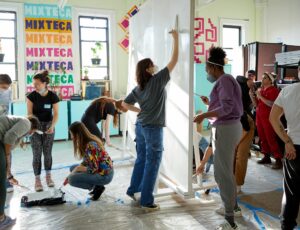
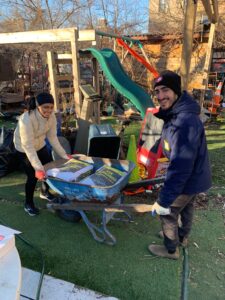 delivering Jewish service-learning content. One new resource for staff is the Repair Facilitator’s Toolkit, a 38-card deck of “grab and go” cards that equip facilitators with key resources to connect participants to Jewish service. This toolkit includes a series of “core tensions” cards that help to engage with the broader landscape of questions and considerations that arise when people participate in direct service. Repair explicitly leans into these core tensions, such as tradition vs. renewal, to deepen participants’ connection to their service and Jewish values.
delivering Jewish service-learning content. One new resource for staff is the Repair Facilitator’s Toolkit, a 38-card deck of “grab and go” cards that equip facilitators with key resources to connect participants to Jewish service. This toolkit includes a series of “core tensions” cards that help to engage with the broader landscape of questions and considerations that arise when people participate in direct service. Repair explicitly leans into these core tensions, such as tradition vs. renewal, to deepen participants’ connection to their service and Jewish values.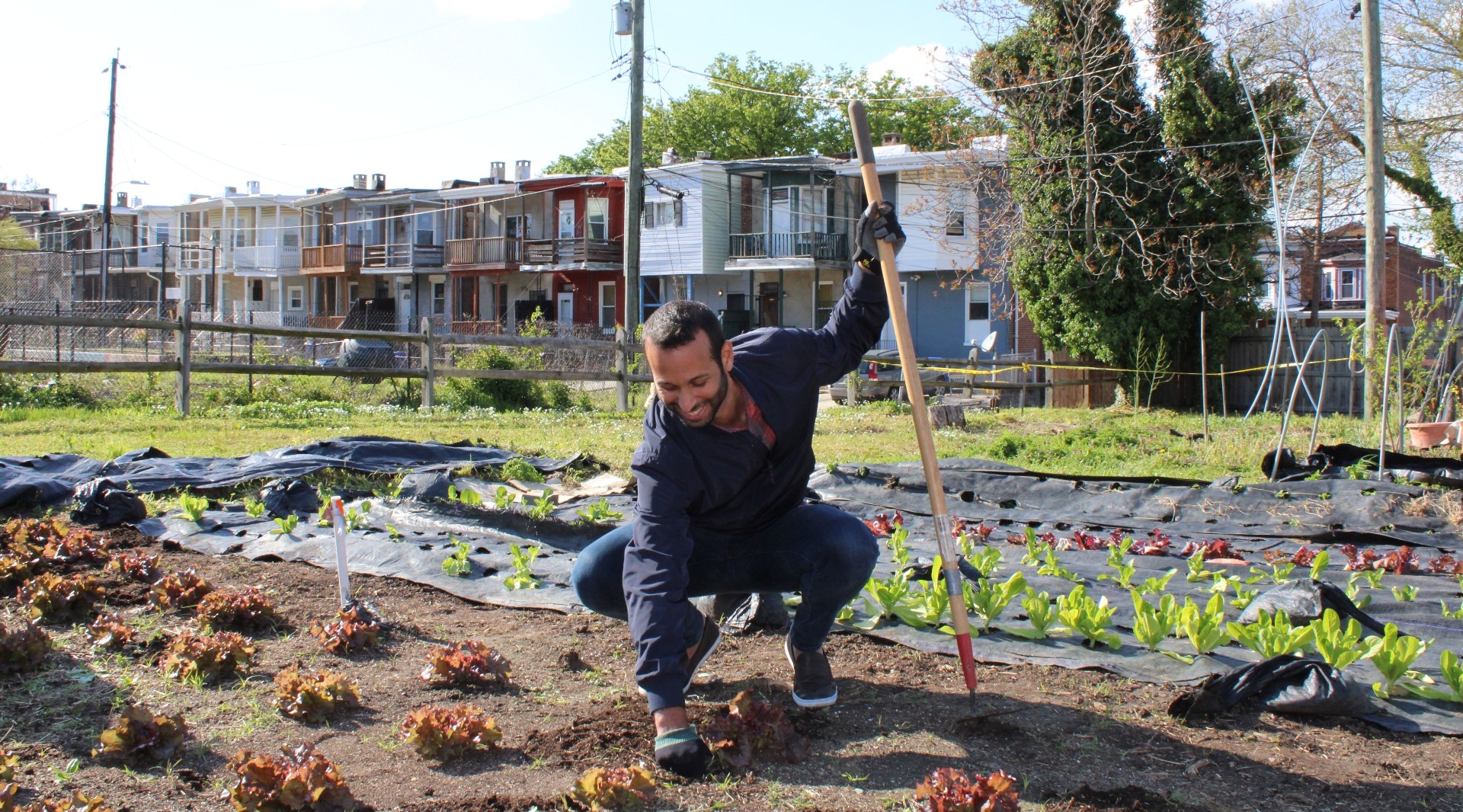
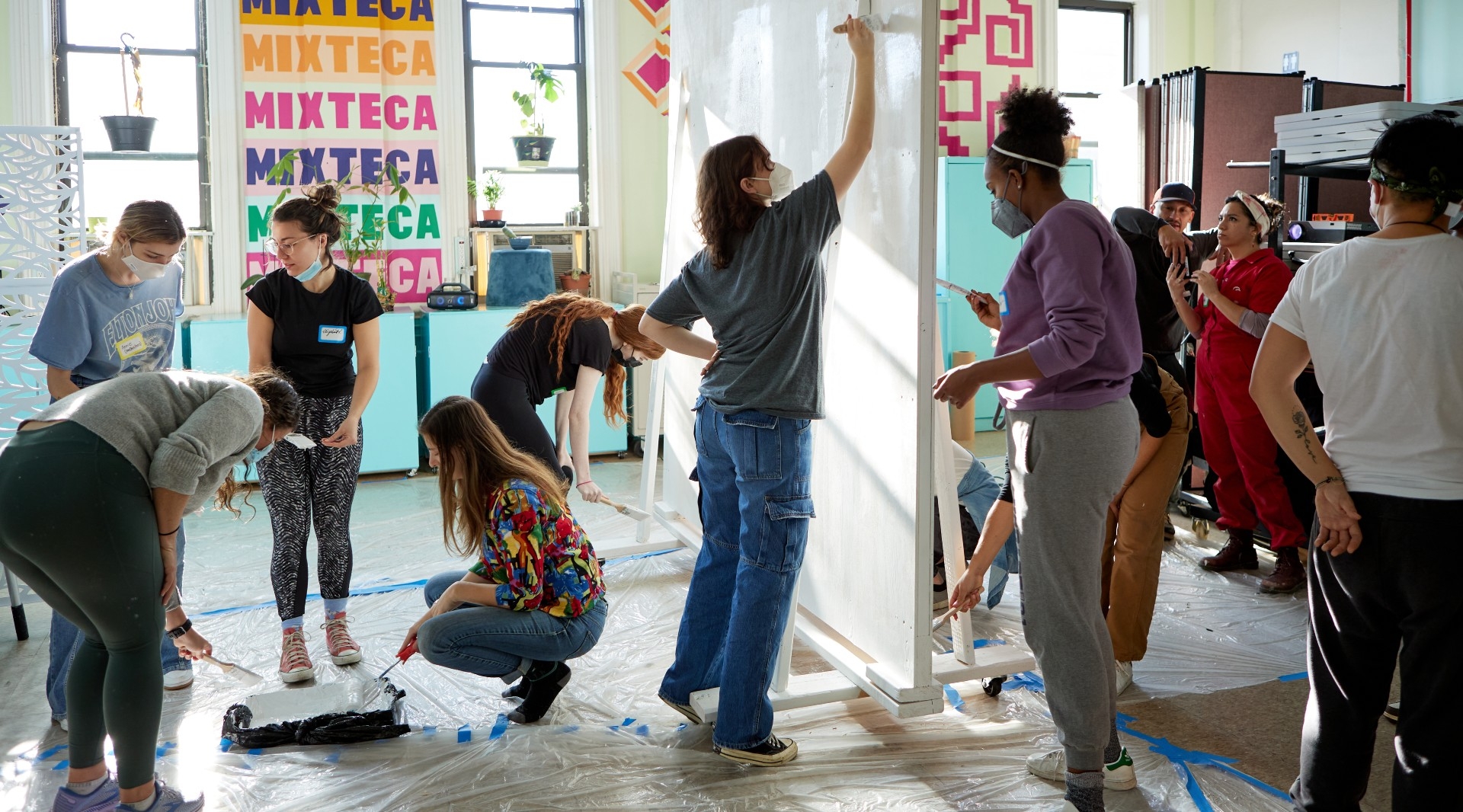
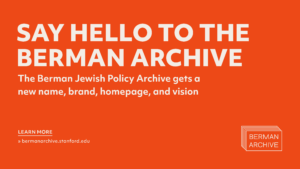

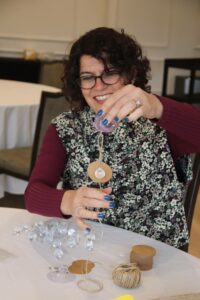 Understanding these initial human responses,
Understanding these initial human responses, 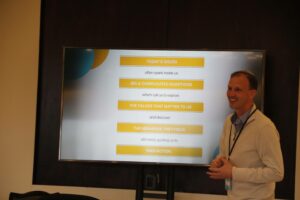 first organizational partner, and then introducing a second organizational partner in early 2023. M²
first organizational partner, and then introducing a second organizational partner in early 2023. M²